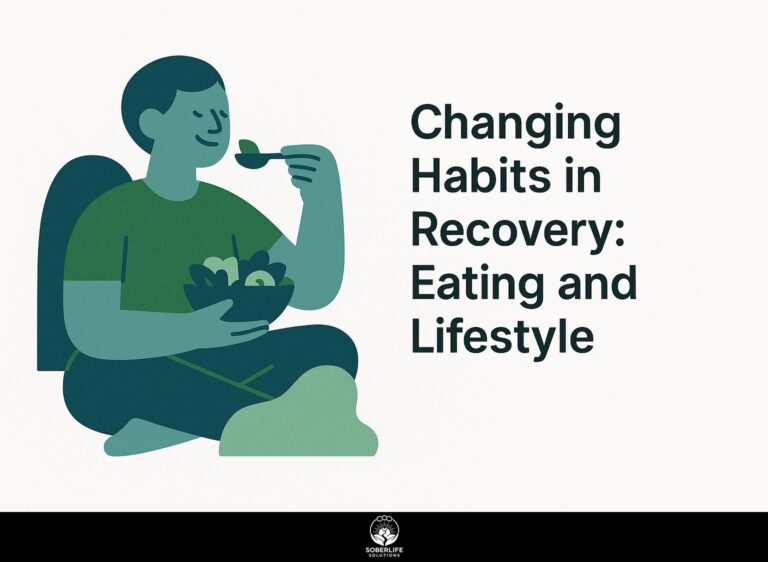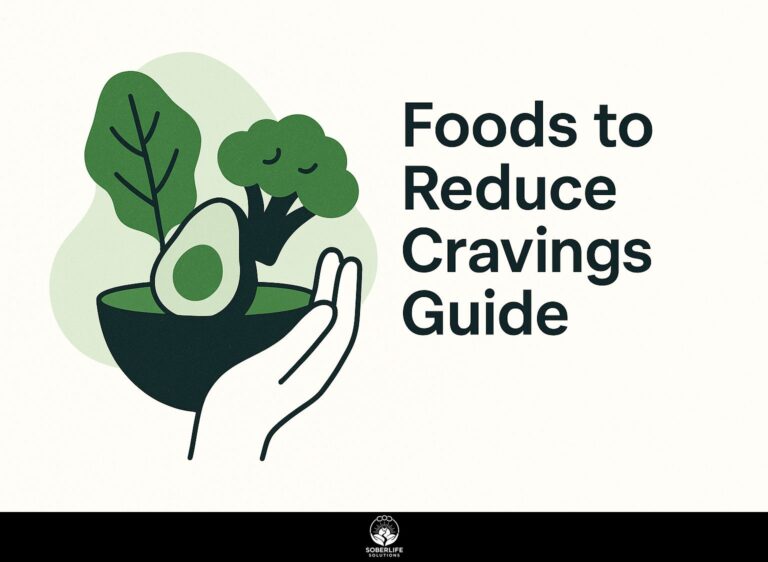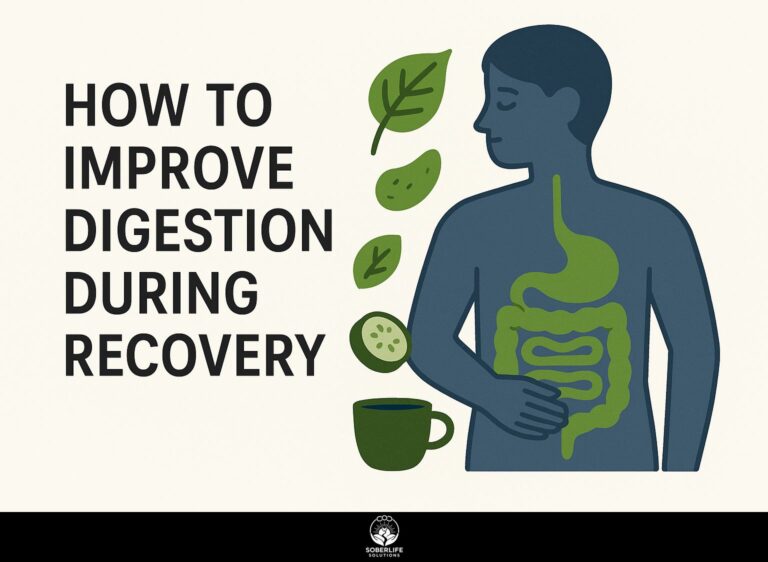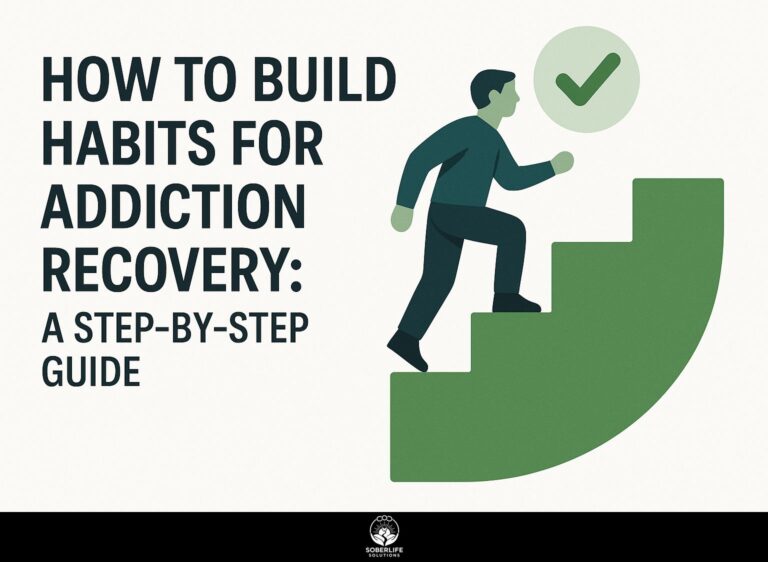Life After Treatment: Healthy Lifestyle Tips and Guidance
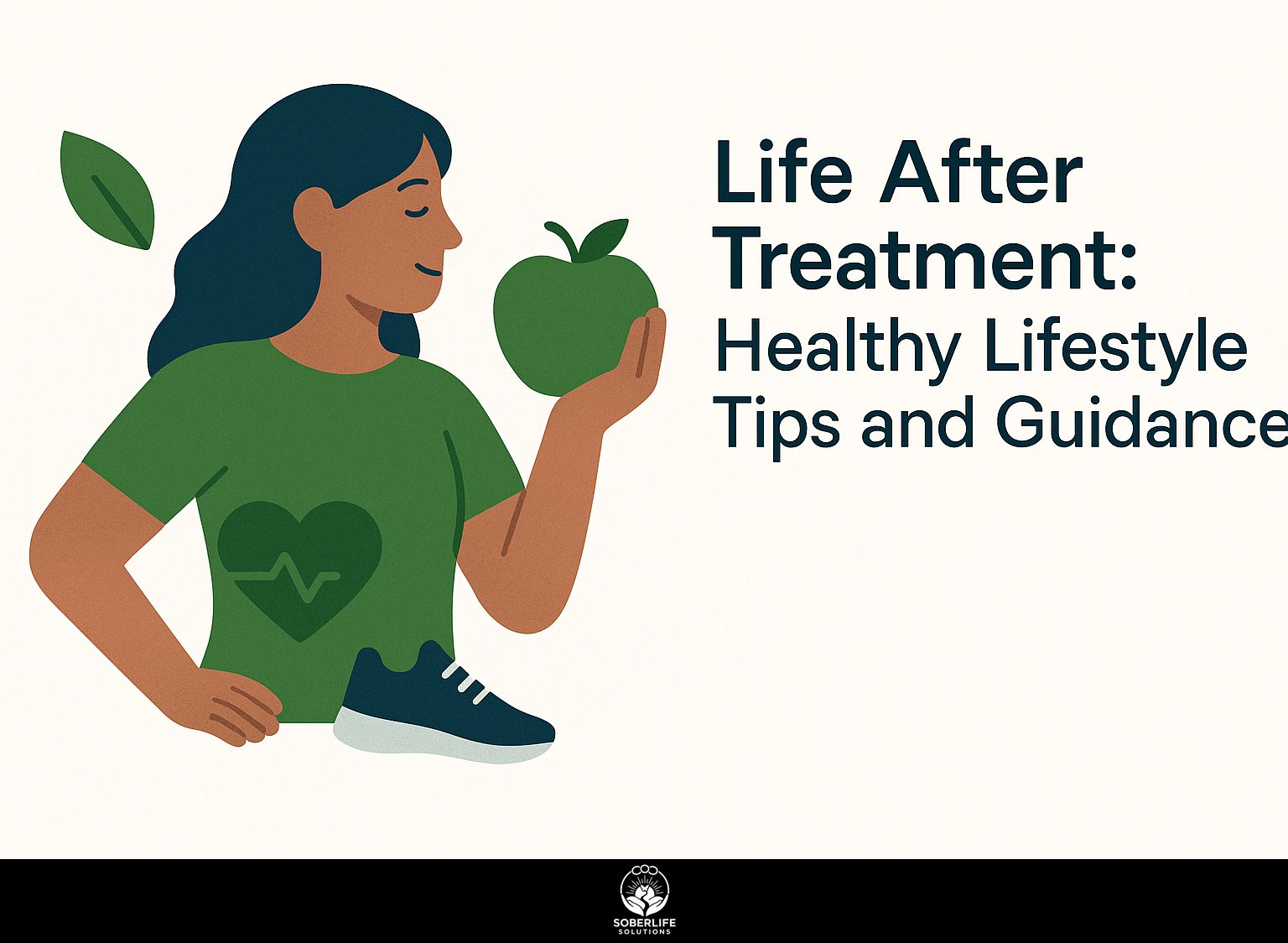
Life after cancer treatment marks a new chapter in survivorship, where embracing a healthy lifestyle becomes essential for prevention and well-being. Specialists from Your Disease Risk and the Siteman Cancer Center at Washington University stress that a good diet and regular exercise are important for staying healthy. In this article, we’ll give you practical advice to help you live a healthy life after treatment, making sure you succeed in all areas.
Key Takeaways:
Emotional Well-Being
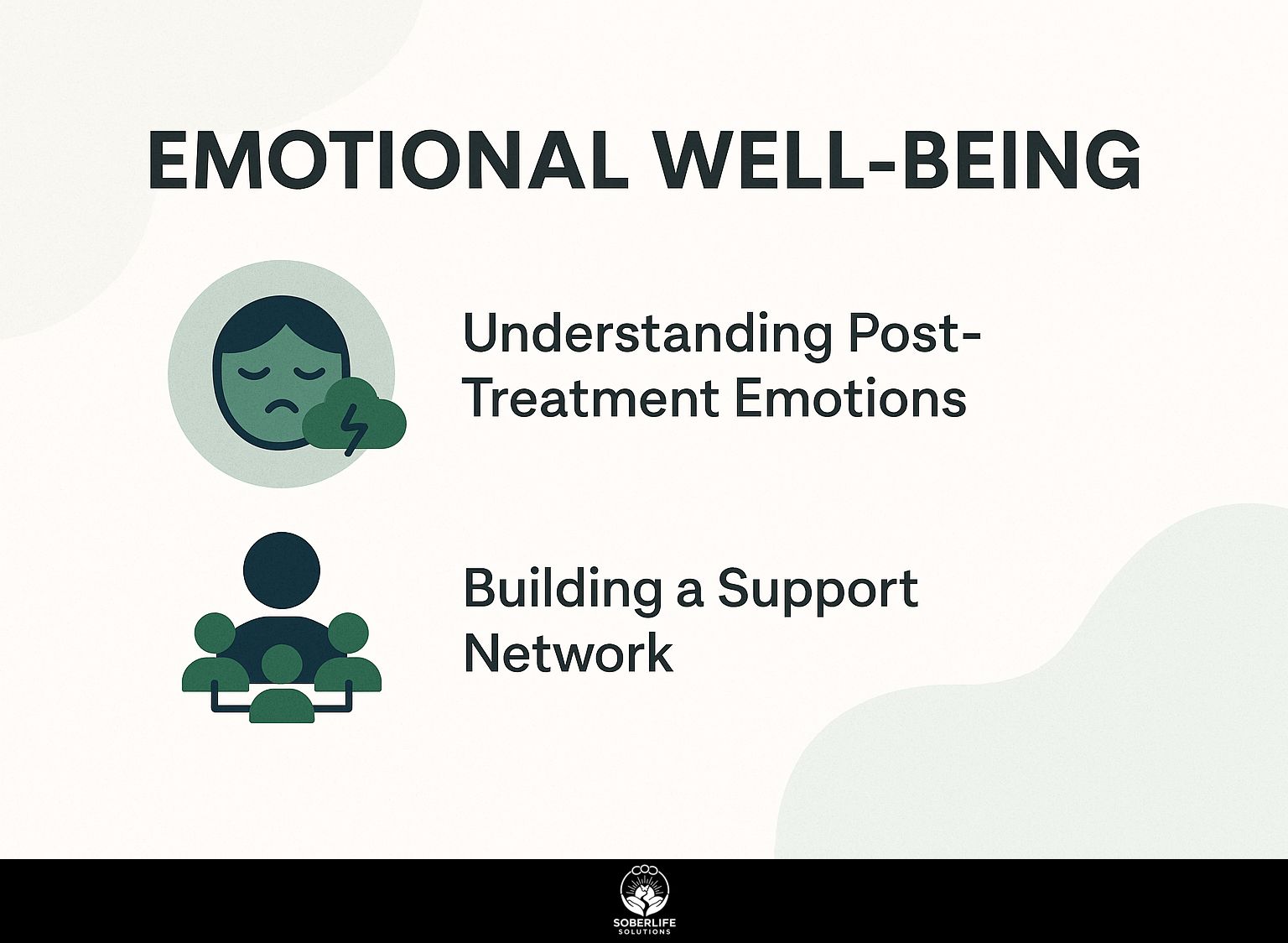
Managing emotions after treatment is important for cancer survivors because it affects their recovery and happiness. For insights into overcoming common obstacles, see our detailed guide on coping with post-treatment challenges: strategies for maintaining a high quality of life.
Understanding Post-Treatment Emotions
Cancer survivors often experience a complex range of emotions, including anxiety and depression, affecting their reintegration into daily life.
Using mental health apps can be very helpful for emotional support after treatment. Headspace provides guided meditations to help with anxiety and sleep, available for free or $12.99 per month.
Joining support groups, such as those organized by LIVESTRONG, provides a community for sharing experiences and coping strategies. Using online tools and connecting with others can help build strength and create a strong support network, which helps survivors handle their emotions well, as highlighted by a recent publication by the National Cancer Institute.
Building a Support Network
Building a strong support network can greatly improve a survivor’s emotional strength and feeling of community.
To build your support network, start by joining local survivor groups, like the National Coalition for Cancer Survivorship, where individuals share their experiences and coping strategies.
Use social media sites like Facebook to find groups meant for cancer survivors, helping you connect with others who have gone through similar experiences.
Join community health programs that support recovery through activities like yoga or mindfulness sessions. These programs provide emotional support and help improve physical health, improving your overall recovery process.
Nutrition and Diet
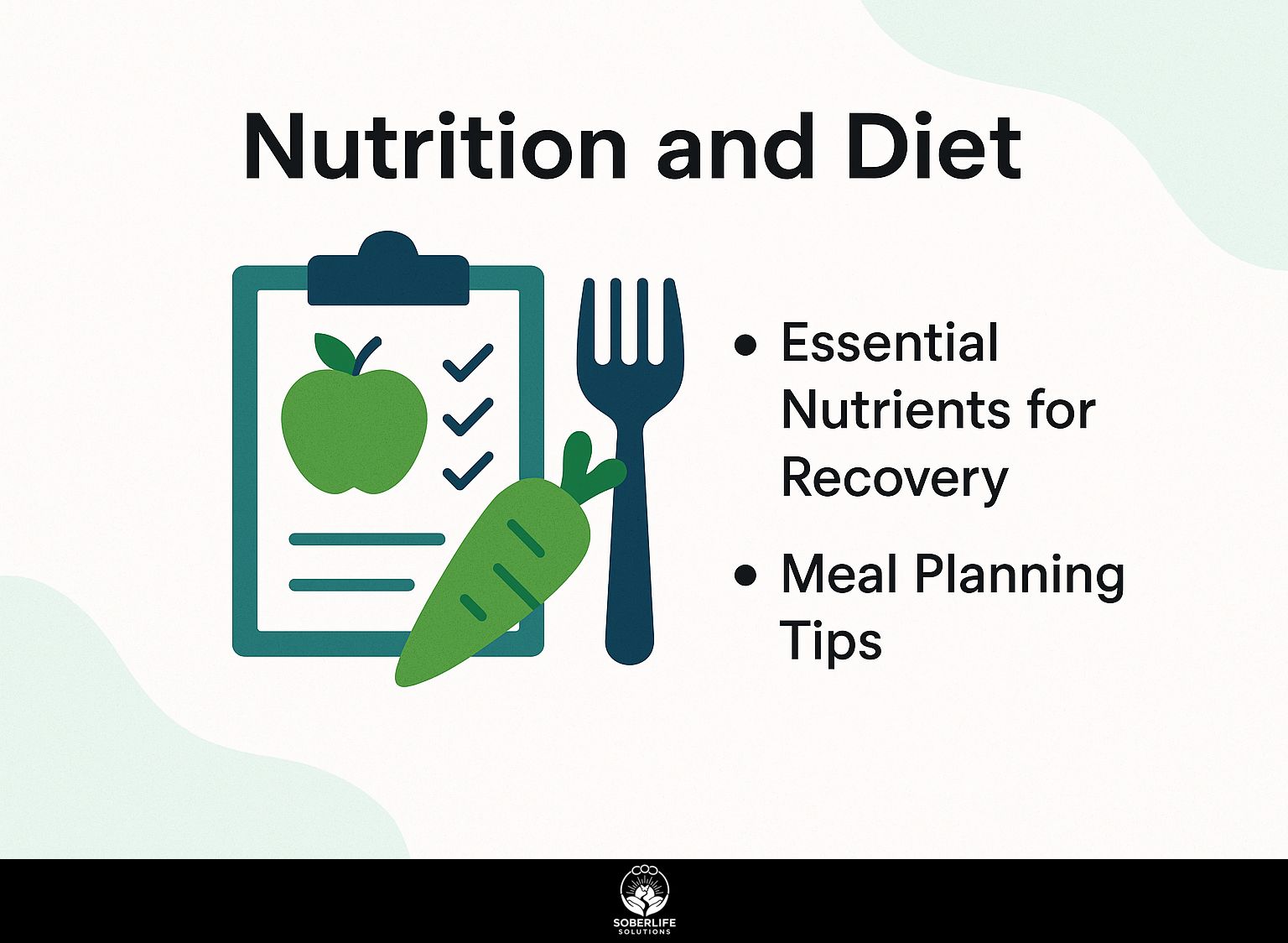
Eating a diet rich in essential nutrients is important for healing and maintaining health after cancer treatment. To further support this healing process, you may also need strategies for coping with post-treatment challenges. Check out our guide on post-treatment challenges and strategies to enhance your overall well-being.
Essential Nutrients for Recovery
Including specific nutrients like omega-3 fatty acids, antioxidants, and fiber can help with recovery and lower the risk of cancer.
Omega-3 fats found in oily fish like salmon and in flaxseeds help keep the heart healthy and reduce inflammation. Aim for at least two servings of fish per week.
Antioxidants, present in berries like blueberries and strawberries, help combat oxidative stress-consider adding a handful to your breakfast or snacks daily.
Fiber is important for digestion and can be found in whole grains like quinoa or brown rice. Include these in your meals whenever possible.
For detailed guidance on nutrition, the American Cancer Society provides comprehensive recommendations that can be beneficial for those recovering from cancer.
Always talk to a doctor or dietitian before changing your diet or adding any supplements.
Meal Planning Tips
Planning meals well can make it easier to eat healthily and help cancer survivors receive the right nutrients each day.
- Start by creating a weekly menu using tools like Plan to Eat ($39/year), which allows you to organize recipes and guide your shopping list effectively.
- Next, batch cook healthy meals on the weekend, dedicating a few hours to prepare dishes like quinoa salad or vegetable stir-fry.
- Keep a grocery list that reflects your menu to help reduce impulse purchases and food waste. Choose fruits and vegetables that are in season. They taste better, cost less, and are more nutritious.
- For example, include spinach in your spring meals and root vegetables during the fall.
Physical Activity
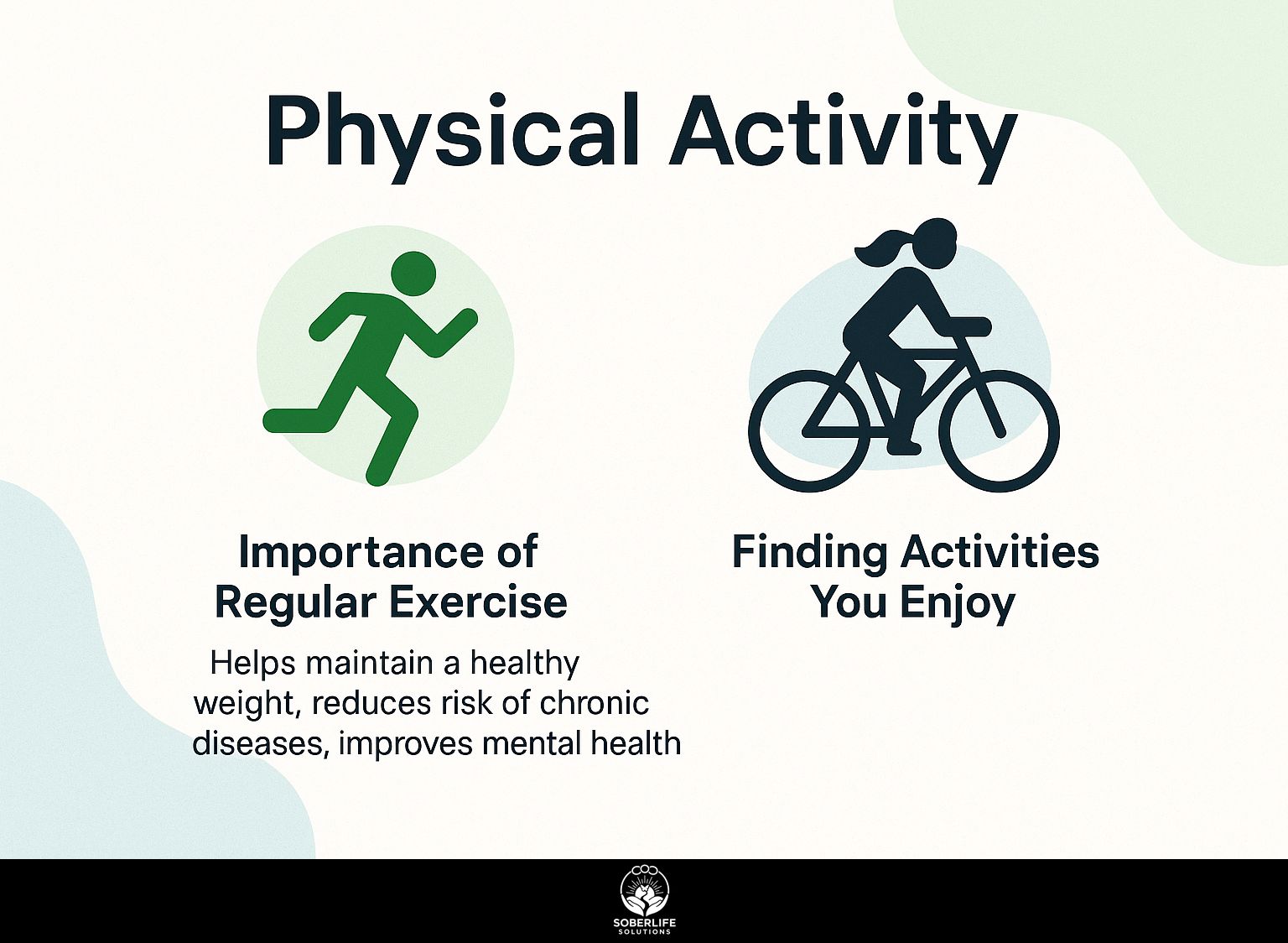
Regular exercise is important for improving health and life quality for people recovering from cancer, yet navigating post-treatment challenges can be difficult. To support those in recovery, exploring strategies for maintaining a high quality of life is crucial.
Importance of Regular Exercise
Engaging in at least 150 minutes of moderate exercise weekly can significantly lower cancer recurrence risk and improve mental health. In fact, a study from The New York Times highlights that exercise can extend life for those with cancer.
To include exercise in your weekly plan, think about activities like fast walking, swimming, or biking.
To get good results, split your workouts into shorter sessions; for example, do 30 minutes a day, five days a week.
Consider joining local fitness classes or working out with a friend. Studies indicate that having company can increase your motivation.
Using apps like MyFitnessPal can help you track your progress and make sure you’re meeting your weekly exercise goals, making it easier to stay accountable.
Finding Activities You Enjoy
Finding enjoyable activities is key to maintaining a sustainable exercise routine post-cancer treatment.
Trying different choices can help you find new ways to move. Consider joining classes like gentle yoga or dance at local community centers, often priced around $10 per class.
Many cancer survivors say they find happiness in being part of groups, building friendships and feeling inspired. Alternatively, joining a walking club through local parks can provide a supportive community while enjoying nature.
Fitness apps like MyFitnessPal provide customized plans and support keeping track of progress, which can improve your dedication. Many users express newfound energy by integrating such activities into their lives.
Establishing Routines
Establishing daily routines can greatly contribute to stability and a sense of normalcy for cancer survivors.
Exercising, planning meals, and making time to relax each day can improve health. For example, a good routine might begin with a 30-minute walk in the morning to refresh the body, then move on to preparing meals like quinoa salads or roasted vegetables for the week.
In the evenings, survivors can dedicate time to activities that promote relaxation, such as yoga or meditation, which have been shown to reduce stress. Notably, many survivors, like author and speaker Dr. Judith McGreal, attribute their resilience to these balanced routines, emphasizing the importance of consistency.
Mindfulness and Stress Reduction
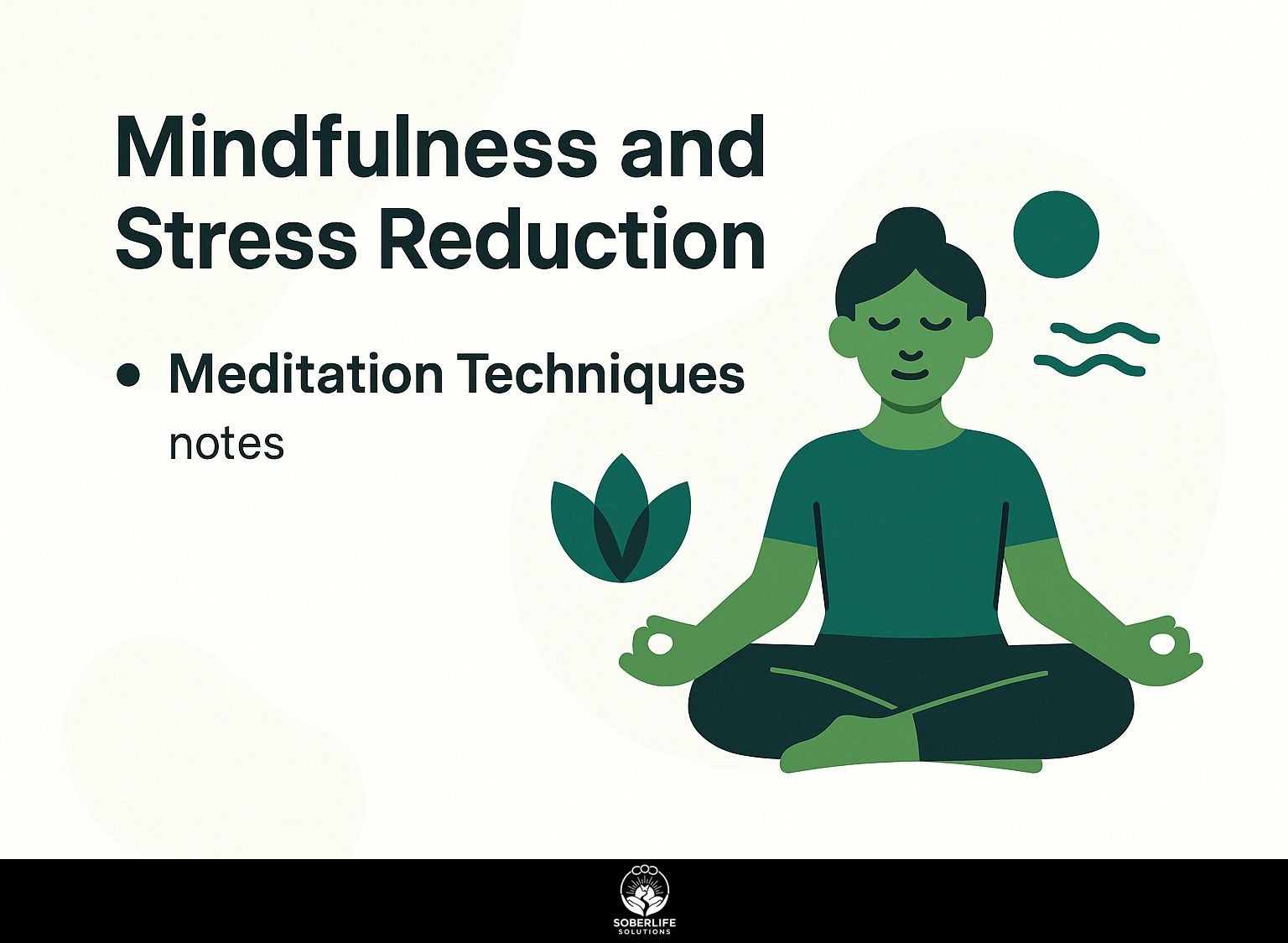
Using mindfulness and stress reduction methods can help cancer survivors recover emotionally and improve their general health. As mentioned, understanding strategies for coping with post-treatment challenges can further enhance their quality of life.
Meditation Techniques
Using basic meditation practices can lower stress and improve concentration, greatly benefiting emotional well-being.
- Three effective techniques to try include guided meditation, mindfulness breathing exercises, and journaling for reflection.
For guided meditation, apps like Calm ($14.99/month) offer structured sessions ranging from 10 to 30 minutes, catering to various levels.
Mindfulness breathing exercises can be initiated in just five minutes; focus on deep, slow breaths to center your mind.
Journaling helps you think about yourself-try questions like “What am I thankful for today?” or “What problems did I encounter and how did I solve them?”
Users often report improved mood and clarity with these practices.
Long-Term Health Monitoring
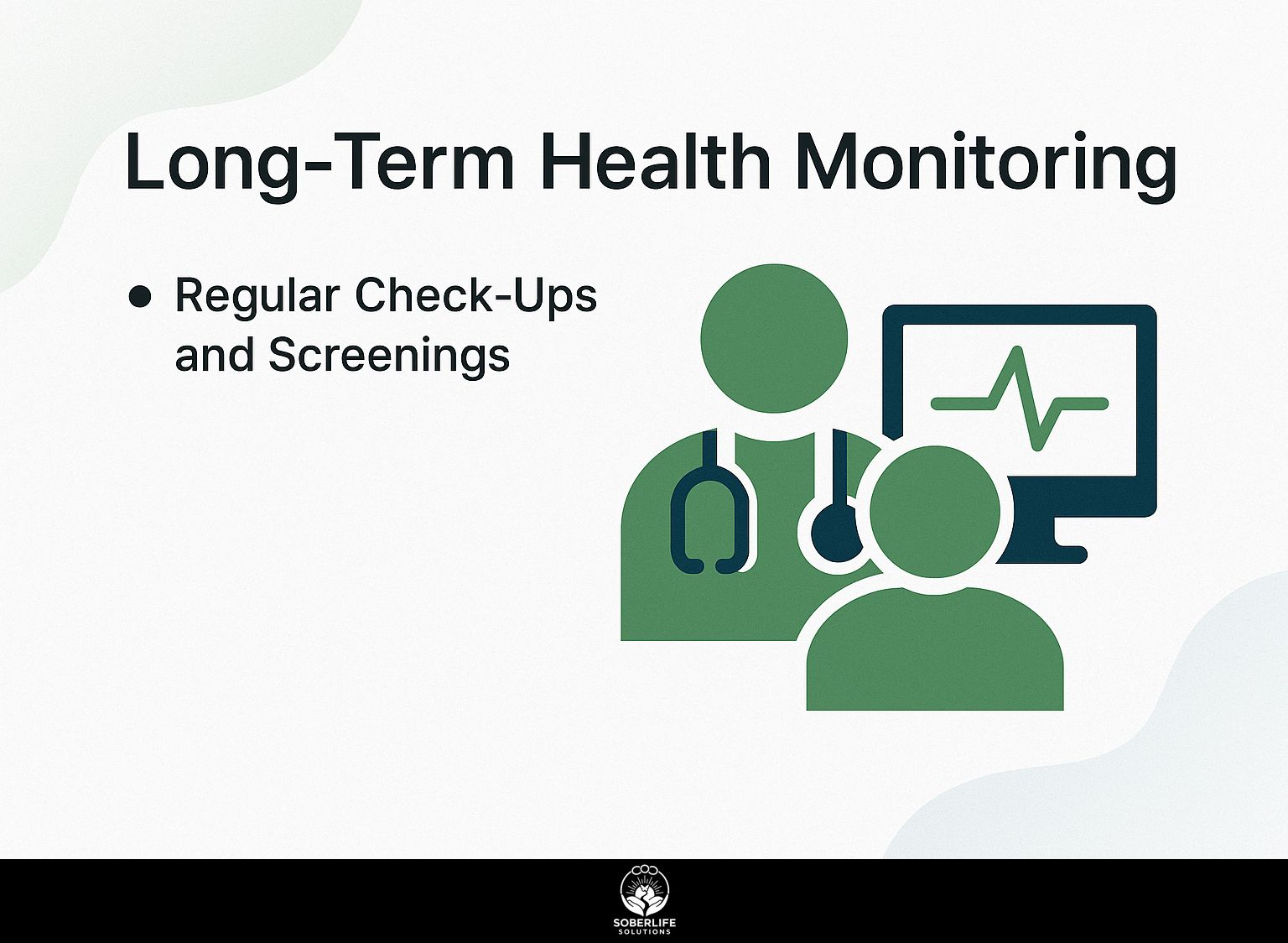
Regular health checks are important for spotting possible problems early and keeping cancer survivors healthy in the long run. To effectively address their ongoing needs, it’s essential to explore relevant strategies for managing post-treatment challenges.
Regular Check-Ups and Screenings
Regular check-ups and screenings can help catch any recurrence or new cancers early, improving survival rates.
Survivors should follow a personalized screening plan after treatment.
For example, breast cancer survivors should have annual mammograms, starting at least a year post-treatment. Prostate cancer survivors may find it helpful to have PSA tests twice a year, based on their recent treatment and general health.
People who have recovered from colorectal cancer should have colonoscopies every three to five years. Those who have survived cervical cancer should have Pap tests as recommended by their doctor.
Always speak with your cancer doctor for guidance specific to your health and risk factors.
Frequently Asked Questions
What are some healthy lifestyle tips for life after cancer treatment?
Some healthy lifestyle tips for life after cancer treatment include maintaining a well-balanced diet, staying physically active, reducing stress, getting enough sleep, and avoiding tobacco and excessive alcohol consumption.
How can I stay motivated to maintain a healthy lifestyle after cancer treatment?
One way to stay motivated is to set realistic and achievable goals, celebrate small victories, and remind yourself of the benefits of a healthy lifestyle, such as improved physical and mental well-being.
What resources are available to help me make healthy lifestyle choices after treatment?
There are many resources available, such as support groups, nutritionists, and exercise programs designed for cancer survivors. Your healthcare team can also provide guidance and recommendations specific to your needs.
Is it safe to resume physical activity after cancer treatment?
It is generally safe to resume physical activity after cancer treatment, but it is important to consult with your healthcare team and start at a comfortable level, gradually increasing intensity and duration as your body allows.
How can I manage any lingering side effects from treatment while maintaining a healthy lifestyle?
Some ways to handle ongoing side effects include drinking plenty of water, taking care of yourself, getting help from family and friends, and talking openly with your doctors about any problems or worries you have.
What role does emotional well-being play in maintaining a healthy lifestyle after cancer treatment?
Emotional health is important for staying healthy after cancer treatment. Make sure to deal with and control any feelings of anxiety, depression, or fear that come up. Take care of yourself and get help when you need it.

